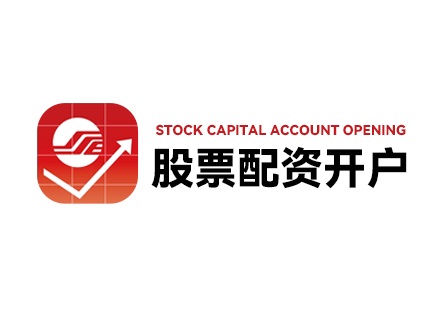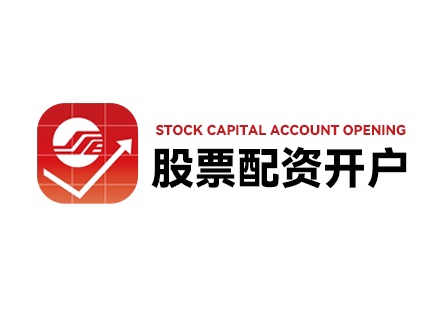 股票配资平台_股票配资机构_股票配资开户_配资门户/在线配资
股票配资平台_股票配资机构_股票配资开户_配资门户/在线配资
智慧投资的钥匙:全方位解析安全股票配资门户
Imagine this: you're in a crowded marketplace, surrounded by whispers of fortunes made and lost, each decision weighing heavy like gold in your pocket. Every investor is a potential adventurer, equipped with tools—perhaps a compass or a map—but the true secret lies in knowing how to navigate the treacherous paths of stock trading. The effectiveness of your journey, or rather, your funds, could hinge on the efficiency with which you utilize what you have.
Here’s a thought: how do we know if we’re swimming with the tide or against it? Analyzing the **资金利用效率**—the efficiency of fund utilization—becomes paramount here. With the right **投资规划**, investors can capitalize on their assets more effectively, while unnecessary losses simply eat into your potential gains. According to media reports, a strategic plan can enhance fund performance by up to 30% compared to random stock choices.
Next up is our **市场研判报告**—it's like reading the weather before a storm. Proper market analysis means identifying trends, understanding market sentiment, and being prepared for sudden shifts. Simple metrics, such as index movements and sector performances, can provide invaluable insights and help you decide when to make the jump—and when to hold back.
One of the key advantages of a **安全股票配资门户** is that it provides a rapid pathway for **快速入市**. Imagine being able to enter the market with confidence, without lengthy procedures that bog you down. But here’s the catch—speed without strategy can lead to disaster. So, integrating a risk management plan is essential. It’s not just about having the right tools but also knowing how to use them to shield yourself from the unpredictable. A well-thought-out **风险防范** approach might just save you from the dreaded margin call.
Now, let’s not forget about the sweet taste of victory: **投资回报管理**. Measuring your returns is like tasting the fruits of your labor. Are you achieving your financial goals? Regularly evaluating your investments against established benchmarks can keep your progress in check and give you the confidence to adapt as necessary. Trust the numbers—after all, they often tell the most straightforward stories.

So here's the real kicker: as you engage with these materials, ask yourself—Are you satisfied with your strategy? What improvements can you make in your investment journey?
In closing, I encourage you to consider these questions:
1. What tools or information do you rely on for market analysis?
2. How do you measure the effectiveness of your fund utilization?
3. Are you prepared to adopt a new approach to manage your investment risks?

Vote on which aspect you think is MOST critical for success in stock investments—Market Analysis, Risk Management, or Fund Utilization Efficiency?
- 08-23配资迷城:资金、规则与节奏的地图
- 08-22配资门户众诚与速配:资金安全与交易决策的实践研究
- 08-23实盘配资的收益与风险断点
- 08-22风控在风暴中起舞:解码全国前三配资平台的信号与策略
- 08-22穿越波动:股票配资门户的技术、客户关怀与资金制胜法则
- 08-22浪潮与矩阵:股票配资的六维操盘哲学
- 08-22风衣里的资本:603877太平鸟的投资调整、融资与行情解码
- 08-23城门口的杠杆密码:嘉峪关股票配资门户新视角
- 08-23光伏脉动:从晶澳科技看格局、策略与心态的共振
- 08-23把不确定性变成可控:一位投资者的股票之路
- 08-22问答式探讨:股票配资门户的认购究竟隐藏着哪些风险与机遇?
- 08-22配资门户视角下的财报解剖:蓝峰科技的稳健与隐忧
- 08-24数据透镜下的配资智管:用AI和大数据把资金变聪明
- 08-22重庆配资市场的五段观察:从市场反馈到资金管理的研究
- 08-23杠杆镜像:在股票配资门户网站查询里看清六面风险
- 08-22光谱之潮:读懂股市信号与理性之舞
- 08-22杠杆背后的问与答:股票配资门户与金多多的安全与策略评估
- 08-23潮起配资:门户减配资下的实时博弈与自保之道
- 08-22配资也能稳如山:从长线持有到实时风控的实操路线图
- 08-22金潮指挥官:在波动中雕刻效率的股票战术画卷
- 08-23当我遇见杨方配资:一场关于风险、心态与资金流的幽默独白
- 08-23配资不是魔法:在股票配资网上走稳每一步
- 08-23一张杠杆的名片:透视股票配资门户网站的真实面貌
- 08-22波动之翼:散户在做空与做多之间寻找成长的自我
- 08-22当门户网登陆像猫一样躲起来:股票配资登录故障的管理与策略研究
- 08-22透明火候:明道配资的控仓与趋势守则
- 08-23信任与效率:解码股票正规平台的六大实战流程
- 08-23当配资遇上理性:从股票配资门户网官网看高杠杆下的自救与治理
- 08-23风口上的对比:品质简配资让高效交易成为日常
- 08-22当杠杆遇上天气预报:一句话教你看穿配资平台的晴雨表
- 08-22配资新潮:个人配资网如何重构持仓与交易的灵活边界
- 08-22短线配资炒股网:把放大镜放在成本、风控与信息流上
- 08-23杠杆背后的透明与智慧:在线配资的可控之道
- 08-22音符化交易节奏:以华泰优配为底座的全景实战解码
- 08-22配资的现场:实盘查询、操盘与提现的全景手册
- 08-23稳健放大:在股票配资门户里做有底气的玩家
- 08-24我和荐杨方配资的一天:从盈亏到净利润的私房笔记
- 08-23开盘钟声里的博弈:一则关于股配资网站的时间线报道
- 08-23獐子岛002069:在波涛中问——股价、融资、风险,该怎么读懂一家公司?
- 08-22如果配资账号会说话:透视透明资金、选股到量化的六大秘密
- 08-23天宇优配:在杠杆边缘寻求理性之光——一份自由笔触的深度观察
- 08-23开封潮涌:在配资门户里听见资金的脚步声
- 08-23霓虹杠杆:米牛配资的光影交易学
- 08-22别被杠杆骗走晚安:关于股票配资门户网站你必须知道的真相
- 08-22因果视角:最专业股票配资的稳健路径
- 08-23三分钟看透简配资:从市场细节到操作风控的实际路径
- 08-23把平安银行000001当成一台会吐票据的咖啡机?一场幽默又认真的投资自白
- 08-21可择金多多赞:穿过风险迷雾的资金增值导航
- 08-22免费股票配资平台官网的两面:机遇、规则与理性选择
- 08-23杠杆之桥:资金管理、市场波动与配资炒股的理性解读